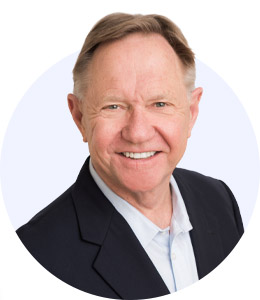Summer is dwindling away, and we can all feel the change in the air. I think of this as the tale of two seasons. Different people respond to this time very differently.
Some people get really excited about the arrival of a new school year. They’re happy school is back in session. Fall sports are starting. They love the drives to see the changing leaves and cooler weather. These are the people whose social media feeds are full of pictures of dorm move-in days and Friday night football and cups of pumpkin-spice coffee.
Then there’s the other type. This person struggles this time of year with a sense of disappointment and let down. Vacation is over. They’re sad that the freedom and fun are coming to an end. They miss all the time they had with their kids, and in the back of their mind, they know winter is coming and daylight is shorter. (I know this type well because I am this type.)
This second category of people can fall into what I think of as the end-of-summer slump. Their mental health kind of takes a hit. They get a little less engaged at work, maybe a little less productive.
As leaders, we need to pay special attention to this type of person. We need to check in with them, show them we care, and help reconnect them to that sense of “calling” that kind of lifts their spirits and reminds them of what they love about their job. A few quick tips:
Think “Connection = Protection.” It’s always important to check in with employees but even more so this time of year. Staying connected helps you see signs of depression or burnout so you can intervene if needed. I call this Relationship Rounding™. Over the years, I’ve noticed that in some organizations, rounding has moved from a practice of listening and building meaningful relationships to a transactional “checking-a-box” exercise.
The kind of rounding I’m talking about is designed to go back to the original intent. We need real relationships that inspire trust, because that trust is what makes people willing to be vulnerable enough to say, “I’m not okay.” You might ask questions like:
- How often do you feel connected to your purpose in your work?
- How often do you feel joy in your work?
- How do you act when you’re stressed out?
- How do you recharge?
Also ask the battery charge question. Don’t ask, “How are you doing?” You’ll just get a canned response like “fine.” Use language that forces people to think and give a real answer that you can act on. Here is a tip I learned from Dr. Jay Kaplan, who learned it from Dr. Alexis Morvant when she was a palliative care physician at Children’s Hospital in New Orleans (now associate professor and medical director of pediatric palliative care at Stanford University). Ask, “How charged is your battery today?” If they say they’re at 90 percent, great. We can disperse them into the workplace to recharge others. But if they’re at 25 percent, or even 40 percent, that’s a red flag. If the number is low a couple of days in a row, we can sit down with the person and ask, “What can we do to charge your battery more?” Click here for a column I wrote on this subject.
Do a gratitude check. You might start each meeting by sharing something you are grateful for. Have others do the same. Another way to replenish is to take time individually or in a group to share why you chose the role you are in. This brings people back to their why. Then move to asking, “Why do you work here?” I’ve facilitated hundreds of these sessions, and the comments I’ve heard are heartwarming: When my father was sick, my coworkers helped me hold it together. When I went through a divorce, my coworkers were my support system. My coworkers threw a baby shower for me. My coworkers are like family. People leave such sessions feeling reconnected to why they do what they’re called to do, and more appreciative of where they work.
I invite you to check out my book The Calling: Why Healthcare Is So Special for more replenishing tips to help your employees (and yourself!) get through the end-of-summer slump.







